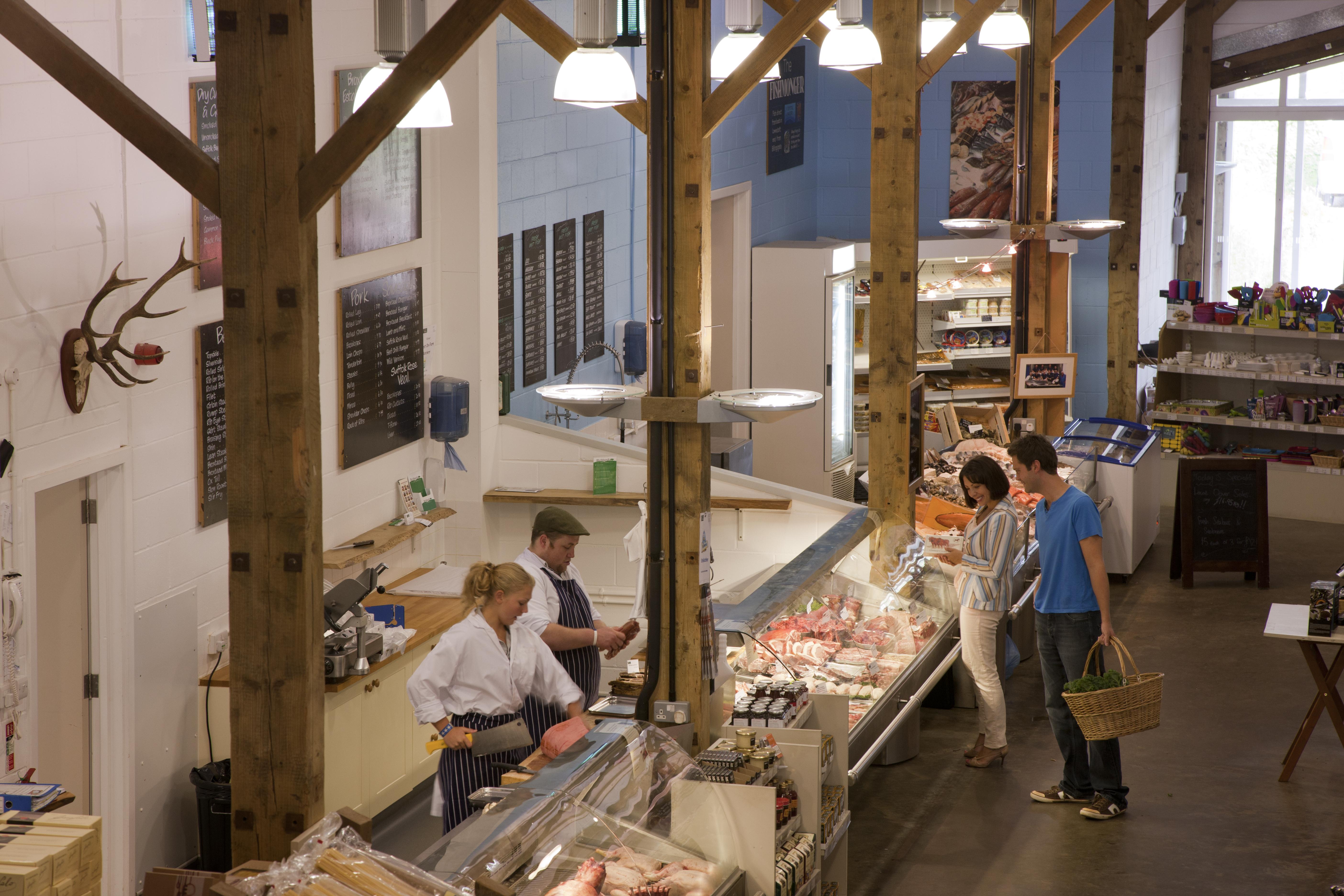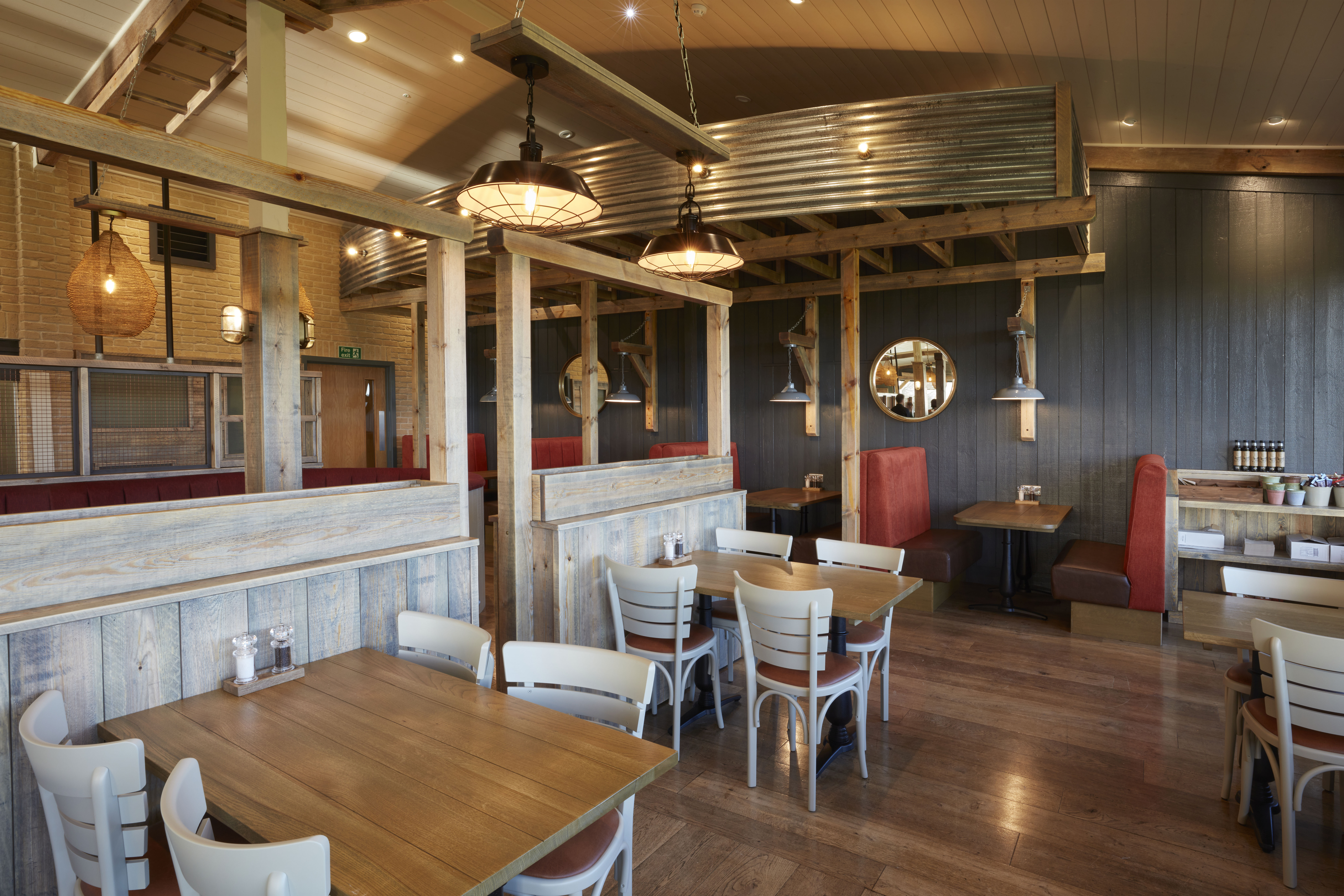Free digital copy
Get Speciality Food magazine delivered to your inbox FREE
Get your free copy
It takes a great deal of vision to stand in a field, survey a clutch of outbuildings and barns, and reimagine them as not just more than the sum of their parts, but something that could be truly extraordinary.
To then see that vision come to fruition, and become more successful than you could have ever thought possible, must surely be a dream come true?
The Paul family knew they were about to build something special when the broke ground on Suffolk Food Hall. Perched alongside the county’s iconic Orwell Bridge, and backing onto prime walking territory, the location screams ‘destination’.
Coming from farming stock, predominantly trading in grain and animal feed, brothers Rob and AJ, and cousin Oliver, really believed in their idea, to create one of the country’s biggest rural food halls. A place where local and regional producers could showcase their wares, and where shoppers could find everything they needed, all under one roof, without relying on a trip to the multiples.
“They had a chat,” says marketing manager Nick Punter, “and decided they really wanted to open a place that puts local food first.” Planning permission was granted around an old barn on family land, and the hall would open a year later, generating huge excitement in the area. “It’s nothing like it is now,” Nick says, acknowledging the business has grown and changed significantly over more than 15 years. “But they used a lot of the original barn space, and pillars and features in the renovation, and started with a butchery, grocery, deli and bakery, fishmonger, garden centre and gift and home store.”

It was a significant investment, “and there was nothing else like it at the time,” says Nick.
Today, Suffolk Food Hall is a go-to not only for shoppers and those fancying a spot of lunch or cup of coffee in the cafe or restaurant, but it’s an attraction in its own right, drawing in families, who love to sit outside on sunny days with something cool from the ice cream hut…or burn off steam on the bouncy pillow.
Adding new reasons for different demographics and users to visit the site on a regular basis has been key to the success of this diversification project and “every year visitor numbers have grown,” says Nick. “We recently looked at our car park situation, and the longevity of stay, and it was a lot longer than we thought. People are coming here, and staying. We’d now say we are an attraction site. We’ve got the fresh counters, the cafe, the restaurant, the ice cream hut, food workshops….there’s a lot going on.”

Refurbishing the restaurant in February 2023 has also had an impact on visitor numbers. “We’ve seen an increase of around 34% on bookings,” reveals Nick.
Growth has happened steadily on site, as the team grew to understand how and when customers were using the food hall, and what else they wanted to see.
One of the biggest changes was the transformation of a secondary barn, creating a first floor restaurant with wide-reaching views over the water and countryside beyond, and a series of unit below, housing other tenant businesses.
More recently a smaller cafe within the food hall has grown, to include a covered outdoor space, and upstairs indoor dining area, meaning there are more opportunities than ever before for customers to stay and enjoy their time here.
“Other changes have included the fact we brought the garden centre in house. It used to be run by Bourne Garden Centre, but we’ve made it our own. We’ve also expanded the bakery and deli counter, and the butchery has definitely grown. Half of it used to be a fishmonger.
“We’ve got better outside seating, and more of it. We’re hosting more events and workshops. An outside assault course gym has opened. And we’re going to be announcing a new play area soon.”
A key driver to Suffolk Food Hall is its local messaging. Residents in the county, and visitors passing by or chalking it up as a day trip during their holiday, know they can experience a true flavour of Suffolk as soon as they step out of the car. “Stocking local is one of our core values, and our buyers spend a lot of their time scouting and looking for really great products from the area,” says Nick, who reveals sales of local goods make up a decent proportion of revenue. “A lot of what we have (including fruit and veg) is from Suffolk or East Anglia, and then we pick the best of the rest from further afield.”
Top sellers include the Stokes Sauces range “which always sell well”.
“And we sell a lot of wine from our local vineyard at Shotley. Local honey sells very well too. And chocolate from Linden Lady in Essex, or Fairfields crisps.”
Absolutely crucial to the success of the food hall though, and ringing through the till in huge numbers, is produce made on site – be that bread from the onsite bakery, tartlets in the deli, or meal solutions at the butchery counter. Nick says these are things customers actively seek out, and that they’ve seen growing interest in prepared food, which is something they will continue to invest in.
“We’re always making innovative new things for customers to try. We’ve got a team of production and development chefs both on the deli and butchery side, making everything from our sausage rolls and samosas, to ready-to-cook items. There’s a huge amount of growth there and we’re currently looking at doing more of our own frozen range. People really are looking for great quality ready meal options. We see them being an important part of Suffolk Food Hall in the future.”

Outside of the main food hall, the renovated restaurant keeps customers coming back to dine…and to shop. “Having the restaurant retains people on site,” says Nick. “And it’s a way for us to showcase some of the products we make and stock in the food hall. Our own burgers are on the menu. Our steaks are on the menu. We try to use as much of our fruit and veg as possible in the restaurant too. It’s another prong to our offering and obviously gives a boost to our income.”
Although it has previously tried opening during the evenings, Nick says it’s breakfast, lunch and afternoon tea that are the restaurant’s bread and butter, and while they arrange the occasional evening event, he doesn’t see a market for opening fully at night. “It just doesn’t really work for us,” he admits. “But we’re always busy at breakfast and lunch. That’s our core customer. And we’re focussing on that.”
Set around the restaurant in the Cookhouse building are multiple independent businesses, predominately food and drink-related, and the team are proud this space has acted almost as an incubator, providing the facilities for start-ups particularly to begin their journey.
Brands such as Choose Spice, Syms Pantry, Carpenter’s Gin and Bwownies all set their stall out here.
“And we have Ilyia’s Kitchen. She runs workshops and cookery classes in our commercial kitchen, for children and adults. It’s always busy over there. Then we’ve branched out and diversified further. A kitchen fitter has a showroom in our old meeting rooms, which we got rid of in Covid times. We’ve got a health and beauty business, Bodylines, that’s moved in from Ipswich town centre, and a podiatrist, and osteopath.”
All of these additions “help to make ours a viable business. They can use our customer base, and we can use their customer base. It really works for us as a whole, we all promote one another, and that can only be a good thing,” Nick adds.
These days, it seems to run a successful farm shop, deli or food hall, you need to not only excel in food and drink, but offer an extra spark or two. Something that sets your business apart, beyond being able to deliver products customers can’t readily find in supermarkets. And Suffolk Food Hall is an example of how slowly but surely discovering your feet, knowing your audience, and giving them both what they want, and what they didn’t know they needed, can be a recipe for revenue.
“My advice, if you’re thinking of expanding or diversifying is to just do it,” says Nick. “I think the demand is out there for unique businesses like ours. Lots of people are moving away from pre-packaged supermarket goods. There’s a greater understanding of the benefits of better quality food in terms of health and the environment. As we’ve gone through the last few years, with the pandemic, people are trying to look after themselves better, and to treat themselves when they can…and that’s where we come in!”